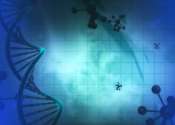Drug kills cancer cells by restoring faulty tumor suppressor
A new study describes a compound that selectively kills cancer cells by restoring the structure and function of one of the most commonly mutated proteins in human cancer, the "tumor suppressor" p53. The research, published ...
May 14, 2012
0
0







